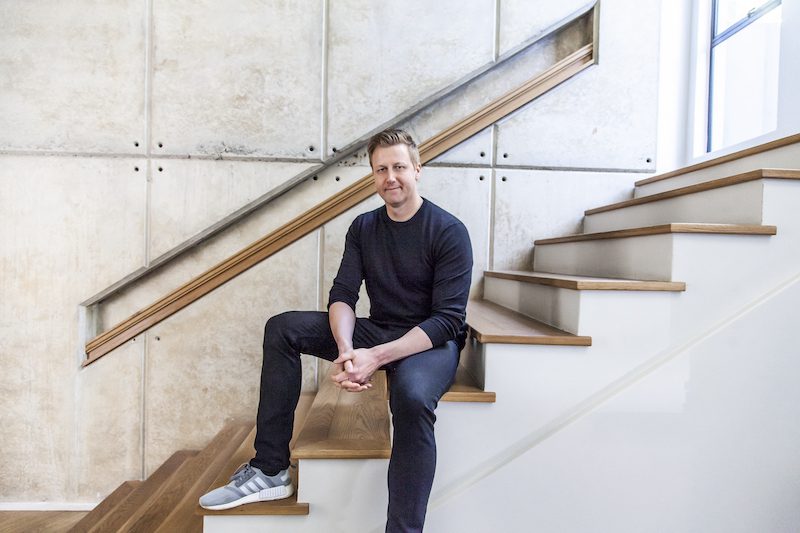
All anyone who thinks they’re smart can bring themselves to talk about these days is artificial intelligence. ChatGPT is all the rage, and not just because of their ludicrous boardroom saga. Thanks to the ubiquitousness of social media and smartphones, smartwatches and intelligent appliances; we’ve started to convince ourselves that we’re getting cleverer. But that’s not true…
According to research published in a Quinnipiac University Poll this October, most people under the age of 25 are getting all their news, views and lack of nuance about Israel and Gaza from TikTok; and most of what they’re watching on TikTok is from other really ignorant teens and twenty-somethings who’ve never read more than a 50-word blog or seen more than a 30 second video about this extremely complex war. Dumbing-down has never been a more apt description for what people’s brains are doing online.
“Idiot’s Guides”, “life-hacks” and “Internet gurus” have made already vapid and empty-headed people even more so, by convincing them they’re using access to technology and information to improve themselves. Most of these people are only interested in re-posting this stuff so that even more vacuous minds will consider them intellectual by association. So you have the blind leading the blind, and complexity being reduced to the short-form in ways that make it impossible for meaning to be communicated. This is also why most of the reactions to banal, obvious things are exclamations like “OMG! How did I get to 35 without knowing this?”. Because you’re an imbecile is why, and because you’ve never read more than three books.
Along with the content itself being made ever more puerile, the tools of communication are also being deployed dishonestly by politicians, activists, propagandists and spin-doctors in order to establish “narratives” that are expressions of manipulative fantasy and bear no resemblance to reality. If you’re as frustrated by this as I am, consider the alternative: Imagine being so stupid that you believe these narratives and discover too late that your world is all made-up nonsense. A much worse outcome in the “knowledge tree” of bad outcomes. “OMFG! How is this possible!!!???”
Pedestrian intellectuals talk about a ‘post-truth’ world. They claim that the advent of fake news, your truth/my truth, lies going viral and red-pill/blue-pill/black-pill (I have lost count of the shorthand terms morons use to figure out if someone else is as enlightened as they are) versions of reality have made it impossible for any conversations to come to terms about basic facts. This is my point of departure from that brain train.
I have always been an Internet maximalist – we have the greatest compendium of knowledge online and the most powerful tool humans have ever devised, the smartphone, – available to all of humanity. I see the opportunities this affords people and the potential it unleashes for all of us to pursue just about any laudable endeavour our imaginations could conceive of. With the right intention and a healthy dose of skepticism, nobody ever needs to find themselves in ignorance again.
Unfortunately, most people with smartphones are gossiping on WhatsApp groups, posting selfies, watching porn, or using ChatGPT to write something for work they have no motivation to do themselves. The only time they read anything longer than a sentence on their phone is when they’re having an online argument with someone they don’t know, and need a fact to back up the position they took up five minutes ago on an issue that they know nothing about – but which is now part of their identity. Indubitably, this has made us less intelligent or interesting than at least the last three generations of our ancestors, despite all the advantages our modern world affords us.
Instead of being embarrassed by this state of affairs, humans, it seems, are doing their level best to leave a digital footprint that will prove to posterity just how stupid they are. A great many people you’ll encounter online are more interested in how they present themselves to complete strangers than learning something truly extraordinary about the world, just to satisfy their inquisitiveness. The perverse incentive of attention-seeking has the predicable result of a requirement for more attention, and that’s not sustainable. Learning something new, on the other hand, has the great advantage of making you a much more fascinating person – and that compounds over time.
When I was a child, my parents gave me a set of encyclopaedias. These, while by no means a numerus clausus of human discovery, gave me an incredible overview and some detailed insights into the nature of reality: science, mathematics, history, the stars, the cell and so much more. I devoured whole pages of those books daily. I’m by no means an outlier, but my desire for knowledge led me to read voraciously, and I pride myself on being able to win almost any general knowledge quiz as a result. I have no doubt that if the Internet had existed when I was twelve, I would have been even more rapt. Along the way, I picked up enough information to be able to talk to specialists about fairly arcane things and thereby further satisfy my curiosity about things as yet undiscovered at the time the encyclopeadia set was published. I could ask peculiar questions of an optometrist that would signal to them that I knew enough to deserve their attention and learn while they taught me about astigmatism, for example. I could sit with an engineer, and without qualification ask them about why a dome might be structurally sound, and at the same time compliment them by asking questions about things their wife or kids might never ask, allowing them to teach, show, and explain.
I heard a very interesting statement on a podcast the other day, that men in particular bond through teaching each other things. Women bond in other ways – by sharing stories and opening up about their problems. Men are mostly not very interested in those things and the best way for them to develop meaningful friendships and mentor-mentee relationships is by sharing knowledge.
There is knowledge worth pursuing – and the pursuit of knowledge is in itself a noble aim. What it requires is effort and curiosity. Smartphones have made us lazy, and have reduced the energy costs inherent in obtaining knowledge, and therefore the value of information itself. You would have had to spend many more units of energy in 1300 to obtain information about Roman sanitation – you’d have to learn Latin, locate ancient texts, travel to places where ruined aqueducts were still standing and meet the most learned men on the subject face-to-face before you could learn even a tenth of what you’d find in the first few results of typing it into a Google search bar. But what Google doesn’t give you in 2023 is the adventure of meeting people, having conversations, going to places, touching structures and spending the time actually thinking about the subject like you might have in 1300. Our fast-food model for fast-knowledge has created automatons who can look something up online but have no insights, no new ideas and no deep understanding of anything.
The good news is that while the effort might be waning, curiosity never dies. A curious child (intelligence is nothing if not the desire to know things) is an unstoppable force. They will find out what they want to find out no matter what obstacles are laid in their path to stop them, they will ask “why” until teachers and parents are ready to throttle them, and the adventure of learning is like a jet engine – the faster it goes, the faster it can go. This is great news for parents and for humanity – these people keep us moving forward, they invent new things and explain others. They seldom make up a majority of the population, but nothing in the majority is ever really desirable, is it?
As we head into the era of artificial intelligence, I hope human intelligence can keep up. Look around you and you’ll see a great many people who are already, in fast and slow ways, redundant. The information revolution has already happened – and like most revolutions, people are now trying to build a new and improved society. The problem with this revolution is that we didn’t figure out beforehand what we wanted from it, and now we’re like cavemen with a rocket, but no idea what a rocket does. Finding a purpose will become man’s big existential question – and those who can ask great questions will get breakthrough answers.

